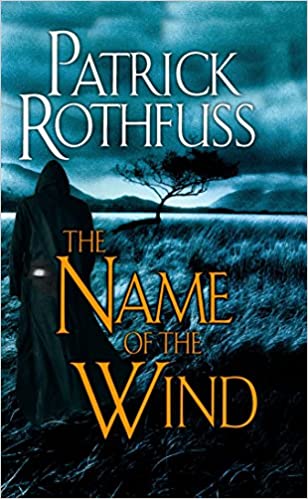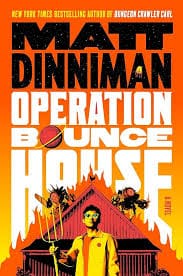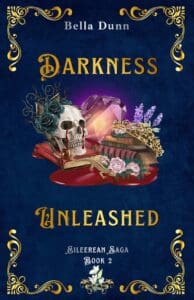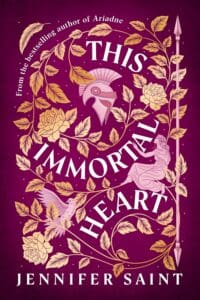My Rating: 10/10
Synopsis:
“I have stolen princesses back from sleeping barrow kings. I burned down the town of Trebon. I have spent the night with Felurian and left with both my sanity and my life. I was expelled from the University at a younger age than most people are allowed in. I tread paths by moonlight that others fear to speak of during day. I have talked to gods, loved women, and written songs that make the minstrels weep. You may have heard of me.”
So begins a tale unequaled in fantasy literature—the story of a hero told in his own voice. It is a tale of sorrow, a tale of survival, a tale of one man’s search for meaning in his universe, and how that search, and the indomitable will that drove it, gave birth to a legend.
Review:
When I am having a bad day, one of the things I do is click through The Name of the Wind quotes on Goodreads. Something about the melodious writing style of Patrick Rothfuss calms my soul. So, during the pandemic, when my anxiety was at an all-time high, it was the perfect read to turn to. I set aside my climbing TBR, which is steeped high with book challenge reads, ARCs, galleys, BOTM reads, and the backlist of various books that I’ve wanted to get to. It was the time for comfort.
“Words are pale shadows of forgotten names. As names have power, words have power. Words can light fires in the minds of men. Words can wring tears from the hardest hearts.”
For this re-read, I started with the audiobook but returned to the physical book at times, too. Turning on audible and hearing Nick Podehl’s narration was immediately like reconnecting with my oldest friend. My eyes well with tears and I let out a deep breath: I am home in this story. As the story progresses, I feel a weight lifted from my shoulders as the story washes over me, completely immersing me as if it was the first time experiencing it all over. Rothfuss has a talent; he took a character’s journey and lovingly threaded a musical quality into his words, each passage hums with a harmonious continuity that few books accomplish. Every word has meaning and hints at something later in the book, but it is done subtly and expertly. You become more enveloped, aware, and invested with every re-read. For first time readers, take note of his words and phrasing. Hint: After you read Wise Man’s Fear, revisit Arliden’s little song about Kvothe’s mother, Laurian. At the time, things that you read may seem insignificant, but they’re deliberate. Rothfuss has centered this story around the importance of names and words, so take note.
“Using words to talk of words is like using a pencil to draw a picture of itself, on itself. Impossible. Confusing. Frustrating … but there are other ways to understanding.”
I, like many other readers and bloggers, can’t fully capture with words why this series is scored on my heart. When I was reading this time, I really took note of Kvothe’s emotional range. I think we are used to seeing female characters in touch with their emotions but with male characters, it is less common. Seeing Kvothe openly weep at kindness, at fortune and misfortune, or at the beauty of art is something that I can relate to. In turn, if Kvothe displays this much depth and compassion, it only speaks magnitudes to the type of person that Patrick Rothfuss is. We see this extended in other male characters besides Kvothe, we see the sensitive and tender heart of Simmon. We see Bast’s unconditional and fierce protectiveness, his adoration of Kvothe. The men in this book aren’t afraid of feeling. Alternatively, the women in this book aren’t afraid of embracing their power. Denna doesn’t apologize for hustling her way into men’s hearts to survive. Mola doesn’t show any doubt in herself in her medical training and she fully embraces her intelligence. Fela has the inventive mind and strength required to work in the Archives and the Fishery. Devi is scary, intelligent, and cunning enough to be a Gaelet, unafraid and imposing enough to deal of the threats of her job as an unconventional money lender.
“Congratulations, that was the stupidest thing I’ve ever seen.” -Elodin
Through the tragedy, through the compassionate moments, through the breathtaking moments, there is a streak of comedy. It’s one of the things that makes this series so easy to love. I can be laughing out loud, then crying within a few paragraphs. My heart is just as likely to swell or break at any moment. We see Elodin humming along to Jackass Jackass, or telling Kvothe to jump off a building (which Kvothe actually does). We see Bast threatening Chronicler so heartily that it brings a chuckle spilling from our lips, or see him singing merrily during his mischief. We smirk while the townspeople skew stories of Kvothe right in front of him, unbeknownst to them. For every beautiful moment, every heart-wrenching mishap, there’s one to make you laugh. The dry sense of humor that Rothfuss possesses shines through.
“Third is the door of madness. There are times when the mind is dealt such a blow it hides itself in insanity. While this may not seem beneficial, it is. There are times when reality is nothing but pain, and to escape that pain the mind must leave reality behind.”
The characters are multi-faceted. Rothfuss understands depression and mental health to a degree that can only be understood if you’ve experienced those pressings on your mind. Elodin is written off by many as a complete wack job, but he shows such moments of clarity and genius that it becomes clear that he prefers to be left to his own devices and thus, embraces his “cracked” personality. I think it becomes obvious, at least in my eyes, that Elodin understands TOO much; that a genius mind is a great and a terrible thing. We see duality in Kvothe, of course. He rides the line of dark and light, always. He takes his revenge and he schemes, all while loving and caring for others. He builds himself a reputation as terrible as it is great.
Lastly, I’d like to mention how Rothfuss can write scenes so beautifully, you feel like you’re there. Kvothe’s scene at The Eolian is one of the few scenes I can recall so vividly that I feels like it came from my own memory instead of from a page. Each time I read the passage where young Kvothe approaches his camp, I break out in goosebumps. My stomach painfully clenches whenever I read about Kvothe on the street of Tarbean. My eyes well with tears when Kvothe breaks down and sobs on his entrance into the University.
“When the hearthfire turns to blue,
what to do? what to do?
run outside, run and hidewhen his eyes are black as crow?
where to go? where to go?
near and far. Here they are.see a man without a face?
move like ghosts from place to place.
whats their plan? whats their plan?
Chandrian. Chandrian.”
If you haven’t read this book, know this: this is a story of a boy that found all dear to him had perished. Unknown to him at the time, uncovers a secret, he discovers a secret: The Chandrian. A nightmare fairytale come to life. It’s the story of a boy looking to avenge their wrongdoings, of a boy fighting his way off the streets into a University that studies mental magic and has paths to the information he seeks. It’s the tale of a talented musician leaving songs and legends in his wake. It’s the slow build of a mythical man. It’s a story of love and a story of tragedy. Very few fictional books have ever awakened my soul and made my mind sing the way this book has. I think it goes without saying that this got ALL the stars from me the first time I read it and every time thereafter. Thanks for sticking with me on this. If you’ve read it, I hope some of this was relatable to you. If not, what are you waiting for?
“Someone’s parents have been singing entirely the wrong sort of songs.”
And since this series is unfinished… I can’t resist adding: please be kind to the authors that haven’t finished their series yet. We have no idea of their mental state or home life, how long it took them to write their first book, or their standards for themselves and their writing.





Leave a Reply